Confucian Parenting Advice
When your parents die, live in the backyard for three years
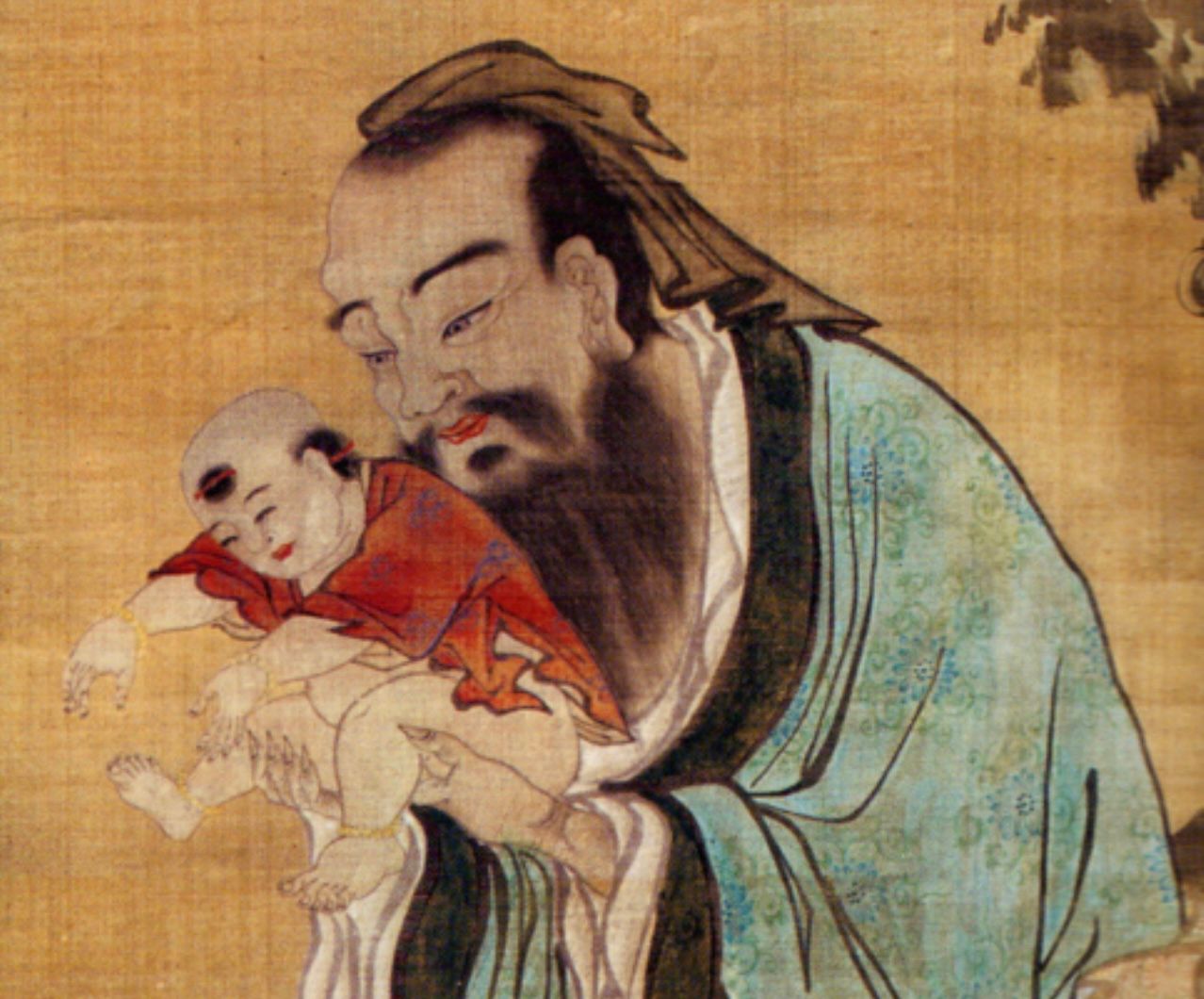
After a parent dies, Kongzi (Confucius) said you're supposed to wear sackcloth and live silently in a hut for years. This made as little sense in 500 BC as it does now, and so his disciple Zizhang asked. What does this mean?
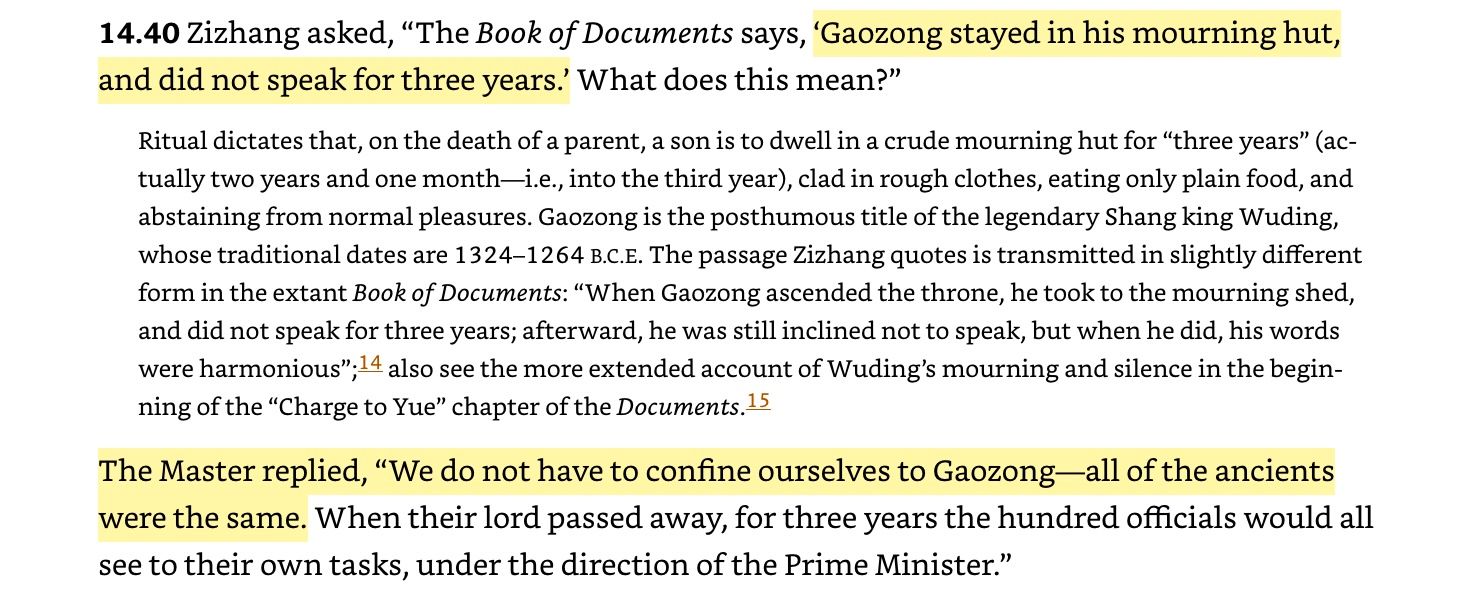
Kongzi was completely serious, saying "Yes, go live in a hut. Everybody lived in huts." You were supposed to wear rough hemp, sleep in the yard, and abstain from sex or eating nice food for exactly two years and one month (into the third year). When I read this I was as confused as Zizhang. Why? And why three years?
The whole act seems pointless, but this simple ritual actually contains the most important Confucian insights on human and political development. It contains ideas that science is just figuring out today. Through ritual sacrifice the ancients were trying to teach us something. Parenting makes people, and people make politics and thus the hand that rocks the cradle really does rule the world.
Why?
The sacrifice Kongzi is describing here is actually parental leave in reverse. Because your parents take leave when you're born, you ritually 'repay' them when they die. Even the amounts are correct, especially for mothers.
But why doesn't Kongzi just talk about parental leave directly? Well, Kongzi doesn't talk about anything directly. As the Master said, "I will not open the door for a mind that is not already striving to understand, nor will I provide words to a tongue that is not already struggling to speak." Kongzi teaches, he doesn't tell. He always gets his students (including us) to figure stuff out, sparking insight in our own brains. One thing he's always telling students is ritual, ritual, ritual. Ritual is spiritual homework. By doing ritual acts, we reflect and learn the lessons ourselves.
That is the point of ritual sacrifice here. Someone mourning for their parents for a symbolic three years would surely reflect on their infancy, and how much their own parents did. A society where everyone did this would surely reflect on the value of parenting. And thus, without being told, people would understand.
The Confucian lesson here is like developing a photo from a negative. By taking dead parental leave, people would see the value of parental leave itself, without legislation, reports, or even words.
Why Three Years?
The ritual three years seems excessive... unless you have children. Then it seems exactly right. Children are completely useless and often difficult for the first three years. As a parent you're barely sleeping, eating spilled food off the floor, you might as well be living in a hut. This is the most important time for a child's growth, and it's almost completely thankless. The kid can't talk for at least two years, and modern society actually penalizes you. Three years of payback seems about right.
As UNICEF says, these first three years "set the stage for all future growth". According to neurological research, 80% of the human brain is formed in the first three years. In petty capitalist terms, this time is also an 'investment'. "For every $1 spent on early childhood development, the return on investment can be as high as $13."
Hence the ancients actually got the ritual time exactly right. It's in line with lived experience, neuroscience, and UNICEF guidance today. While UNICEF tells people to focus on the first three years through reports, Kongzi tells us the same thing through ritual, and this has transmitted for thousands of years. Kongzi was actually just passing it on. Hence when some dude from Harvard says
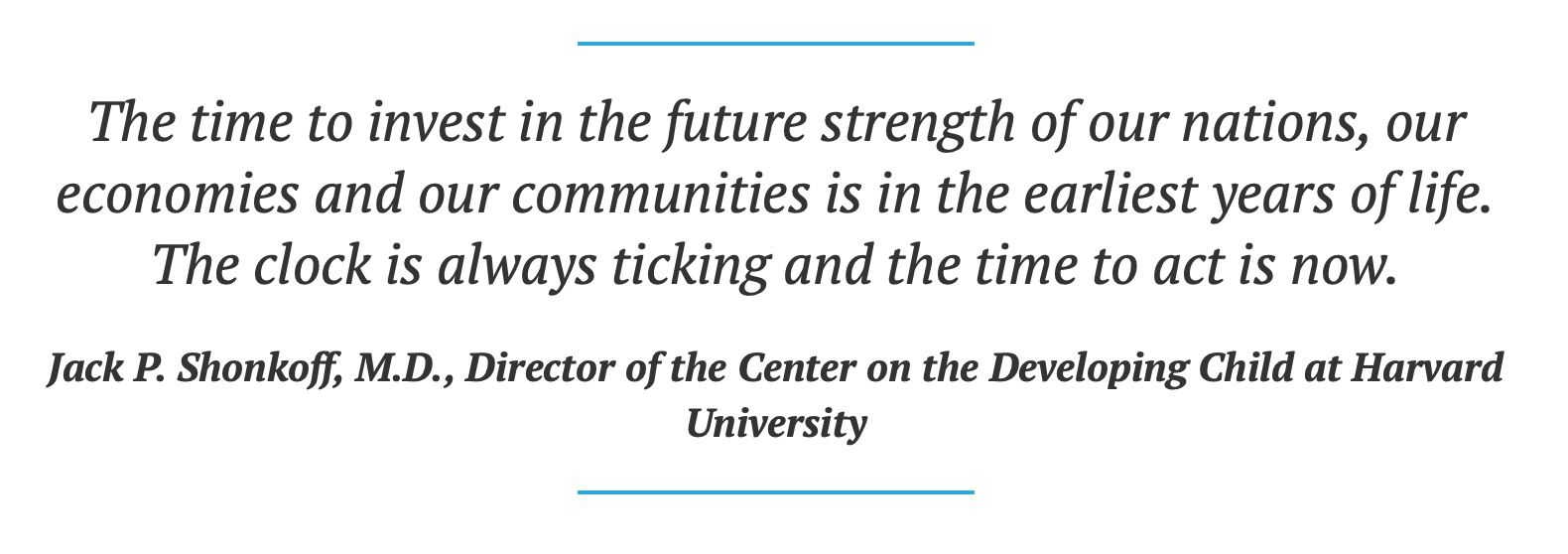
he's actually echoing the old saying that "if the roots are not straight then the branches will necessarily be crooked, and if the beginning does not flourish then the end will necessarily wither." This is called reverencing the root. When Dr. Shonkoff talks about the 'future strength of nations' this directly echoes Confucian governing philosophy. This is called governing through filial piety. It's frustrating, but this is basically all Kongzi says about governance. Let the parents be good parents, the kids be good kids, and everything will be fine.
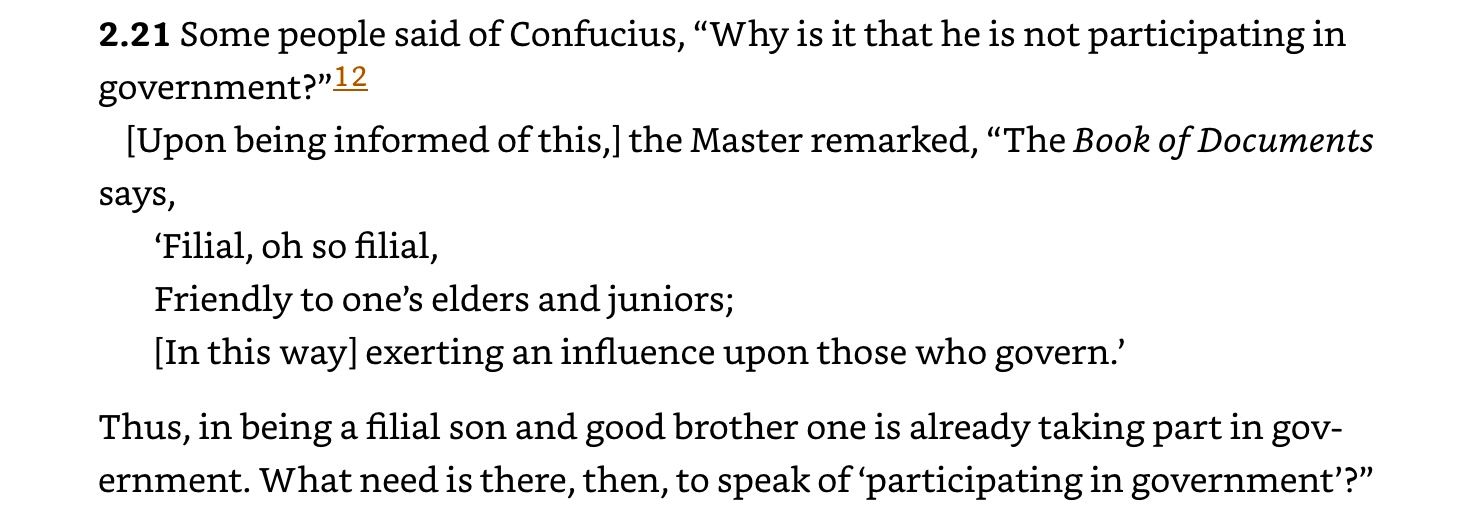
Indeed, Confucianism does not have a separate theory of politics. Being a good child, sibling, or parent is governing. Governing your self is governing. To the Confucian mind, politics is not something abstract or seperate from life. Politics is just human relationships.
If you want to heal politics, you have to heal relationships, starting with the first relationship we all have, between caregiver and child. If you want to get people to understand this, you can't just tell them, because people don't listen. You have to guide them through ritual, so the insight dawns on them from within. And ritual itself guides a society better than laws. Everyone would surely notice if people kept disappearing for years, and want to deserve such reverential treatment themselves.
Thus through ritual sacrifice when a parent dies, you get harmony with the real sacrifice when a child is born. Those three years of shared sacrifice would rhyme across an entire population, and reverberate across thousands of years. And so we return to the original verse above, the question that confused disciples and commentators for generations since. Why on Earth did King Gaozong take a ritual three years off, when he should have been governing?
I'll include the commentary here, because people were puzzling over this well into the 1600s.
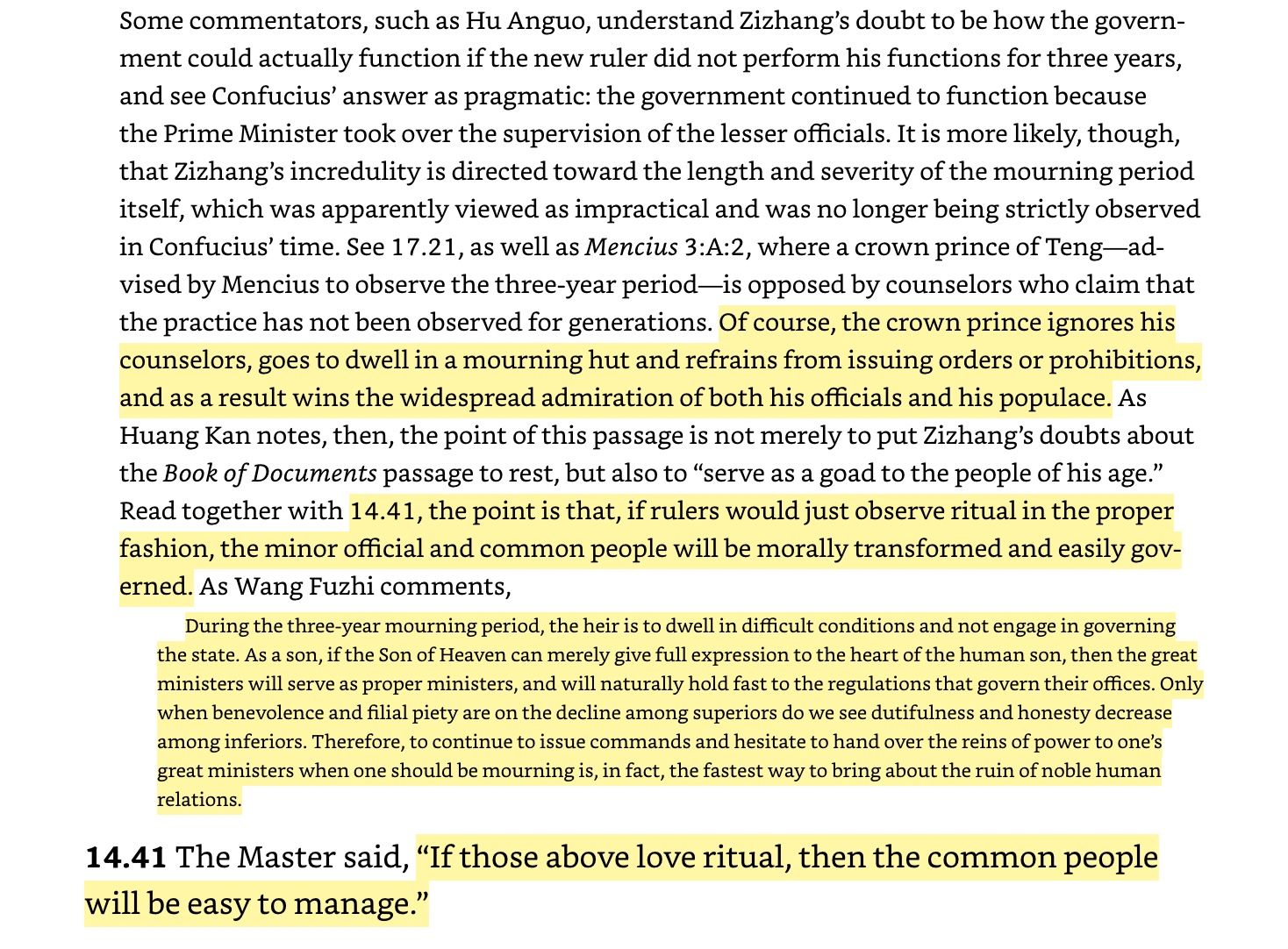
Thus in this one small verse is contained the essence of Confucian political thought. If the Son of Heaven (the king) just gives "full expression to the heart of the human son" then the ministers will be true ministers, the parents will be true parents, and the kids will be true kids. By setting the core relationship between parent and child right, the network of relationships that is human government will harmoniously run itself.
Such is wu-wei governance. Happy politics starts in a happy home. Goodness radiates outwards from the household, it isn't imposed by punishment or laws. I would not have understood this idea (and there's much more to it) without the contemporary commentary of Erin M. Cline:
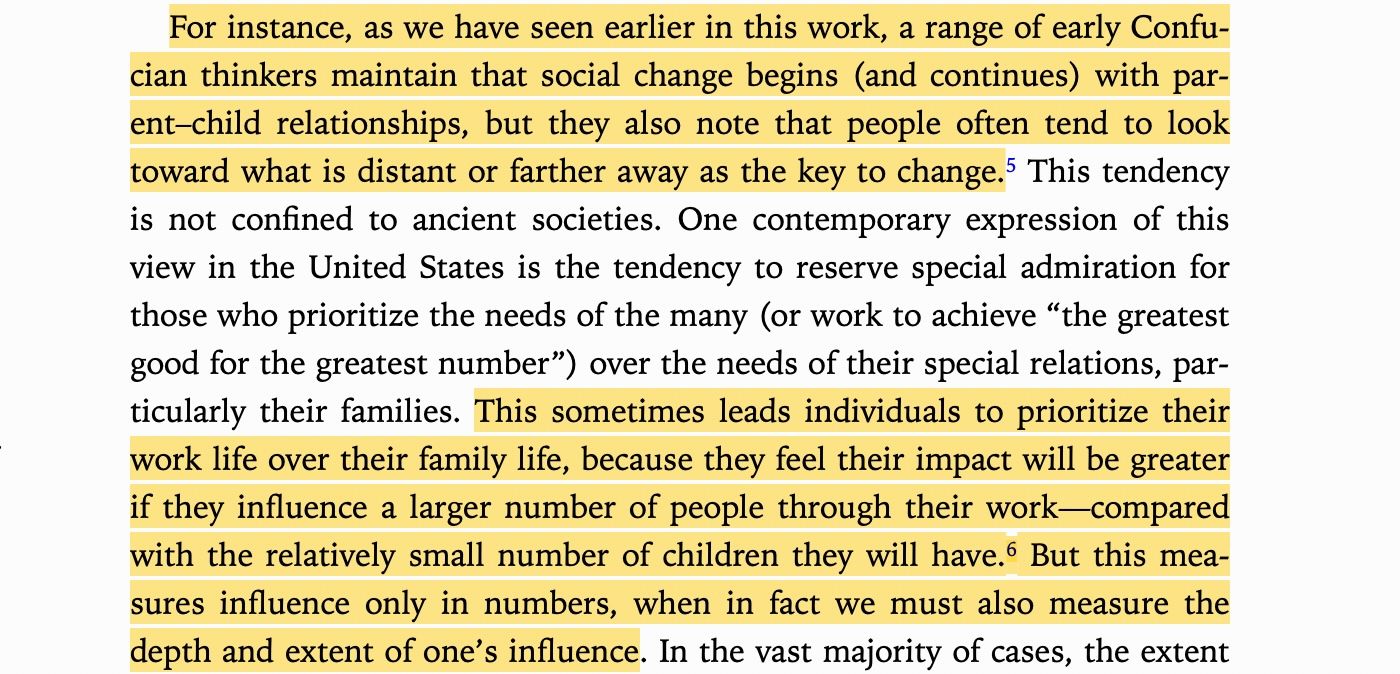
As Cline continues, "almost none of us will ever do anything as grand as leading the civil rights movement, but we can help build a great family." It is important to understand then, that building and supporting families is inherently political work. Cline's work is worth reading because it places Confucian thought in context (especially feminist context), but the fundamental insight about parenting is sound.
Our measures of GDP, growth, and wealth place exactly zero value on raising children, and our civilization is now melting mother Earth. We've obviously gone terribly wrong, and the problem seems to have started 3,000 years ago. Kongzi was trying to teach people then, and he's still teaching us today.
To be honest it's taken me over a year of not understanding this to understand, but it's not absurd to live in a hut for three years. It's actually wise. Ritual sacrifice teaches about real sacrifice. Honoring your parents honors parenting itself. And we can never solve our big problem by tinkering around the edges, we have to get to the root. To the parent and child, to each birth that has the potential to remake reality anew.
When my sister got married, my mother brought up an ancient ritual herself. She wanted a traditional gift of many meters of cloth to 'repay' her for the many liters of milk she'd given to raise us. We laughed it off, but she was right. It's not about the cloth, it's about the thought, and how that recenters what we value in the world. If our parents raise us for years, shouldn't we praise them for as long?
If you would like to support this writing, I invite you to sign up for a paid subscription to my newsletter. You get the same access with a free subscription, but I get paid with the paid one.
Erin Cline's book Families of Virtue: Confucian and Western Views on Childhood Development is what led to this piece. It's a very thorough analysis of Confucian thoughts on child development, comparing it most importantly to feminist thought (and the overwhelmingly 'mothering' nature of this care). It's academic but I highly recommend, at least the last two chapters. You can buy it from Blackwell's or borrow it from LibGen.
Further writing by me on Kongzi: Confucius and the Programming Language of Power